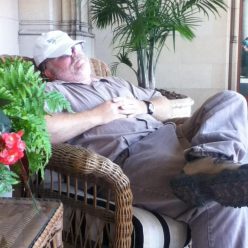
By RAHN ADAMS
Cutting to the chase, I’m not a fan — of social media, that is. Never have been.
I know that “social media” can be broadly defined and include platforms other than the three or four that most smartphone owners and tablet users prefer. I’m referring primarily to Twitter/X, Facebook, and Instagram, the ones I’m most familiar with.
I’ve never used Snapchat or TikTok, and I don’t intend to. I’ve used YouTube for years, but I go there for the how-to and music videos, not for the inane comments from viewers. I recently logged onto Bluesky, but I know little about it, as in whether I like using it or not.
Again, I’ll come straight to the point. I’m tired of having what I say and see on a social media platform be controlled by someone pushing their own interests, not mine.
“Using” and “pushing.” Those are interesting words, too, huh?
Basically, social media has replaced the local newspaper. Yeah, yeah. We hear that all the time about small-town newspapers closing down because they’ve lost subscribers or advertisers, or because people don’t need birdcage liners or fish wrap like they used to.
No, I’m talking about how we decide what becomes public information and how we share our personal opinions about that information — also, how we hold to account the sources of the information we consume.
“Consume.” Another interesting word.
It used to be that most towns of decent size had their own newspapers, whether they were published daily or weekly. What a reader saw in their paper was a reflection of that community. The information was produced by members of that community. The information was curated by reporters, editors, and publishers who were also part of that community. Even the advertising was at one time largely community oriented.
Shoot, if we didn’t like what someone said in the paper, we could let them know about it with a signed letter to the editor or, in rare cases, a face-to-face confrontation at the grocery store. That lack of anonymity did wonders to encourage good behavior, as did the time and effort it took to gripe about something in the paper.
I think the main reason social media is so popular and so powerful in this so-called Information Age is because we’ve become fat, lazy, and addicted to free and easy ways to be informed — or to think we’re being informed. And online anonymity and convenience have done us no favors.
As it turns out, our “informers” know all that and are betraying our blind trust in them, for the benefit and enrichment of themselves, and for those wealthy and powerful people whom they represent.
So here’s what we have to do, and it isn’t easy or convenient. Breaking an addiction never is. We have to build local information networks that can’t be manipulated as readily and easily as social media is. We have to focus on local information that affects us — you know, local people like you, me, and our neighbors.
“Local” is the key word there, if you didn’t catch it yourself.
What does that local network look like? It depends on the community. A local newspaper, whether in print or online? A local radio or TV station? Sure. In-person gatherings in public and private spaces. Certainly, when safe and needed. A group text message — or handwritten notes — among friends or colleagues? Maybe. How about a low-power FM radio station that broadcasts nothing but local, even neighborhood, announcements, or, heck, CB radios? Yeah, those things could work, like any number of alternatives to social media as it is now.
My point is, we need to focus more on what has already closed in on us — what we can grab hold of and shake back to its senses — and less on what’s outside our limited reach.
